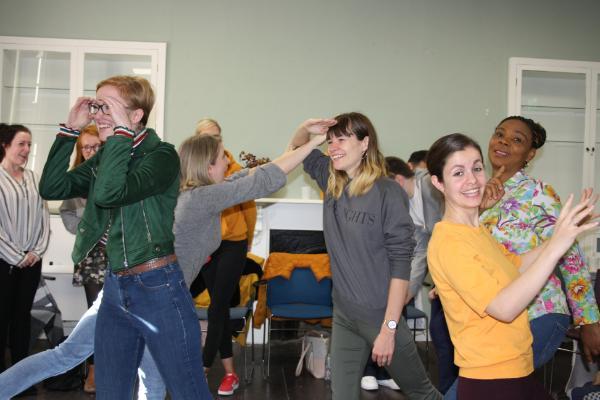In This Section
- CIRTL Homepage
- Meet our Team
- Resources
- Short Guides
- Short Guide 1: Starting Well
- Short Guide 2: Scaffolding Learning
- Short Guide 3: Icebreakers
- Short Guide 5: Discussions for Online Learning
- Short Guide 4: Visualising Thinking
- Short Guide 6: Universal Design for Learning
- Short Guide 7: Group Work
- Short Guide 8: Reimagining Practicals
- Short Guide 9: Assessment in the Age of AI
- Sustainable Development Goals Toolkit
- Group Work
- Connected Curriculum
- Civic Engagement Toolkit
- Learning Outcomes
- DigiEd Reading List
- Ethical Use of GenAI Toolkit
- Short Guides
- Professional Development
- Events
A Focus on Facilitation

It may seem obvious that facilitation skills matter for Community Engaged Learning, but the value of giving this some dedicated focus shouldn’t be underestimated. Good teachers are already facilitators of learning, so the chances are you already have a good foundation, even if you haven't recognised this as a core skill. Equally whilst facilitation skills come more naturally to some than others, all facilitators can and should work on knowing and enhancing their facilitation style.
Not all CEL initiatives require educators to play strong facilitator roles. For example, if you are preparing individual or small groups of students to go out to multiple community organisations without your input then the requirement for facilitation skills may be less obvious that CEL initiatives that, for example, have one partner that the lecturer and their students work with for a defined period.
Generally, CEL is an experiential process involving community and student participants and facilitating the CEL process and discussions is central to ensuring participants stay engaged with the initiative. If you have the opportunity to undertake facilitation training before setting out on a CEL initiative, it would be a worthwhile investment of your time and strengthen your confidence and ability to manage the outcomes of the community partnership.
Of course, that's not always an option so the next best thing is being prepared and planning a clear sequence of activities for the collaborative sessions with your community partner. Here's our checklist for things to think about:
A skilled facilitator:
- Pays attention to the setting in which participants meet: is it accessible, can everyone be creative in this space, can students and community participants easily work together, what are the acoustics like, is there refreshments (who pays for these and who prepares them)? etc.
- Is aware of their audience: is there a mix of languages, are there any additional learning needs to be met (hearing impairments?), are the community participants familiar and confident interacting with or are they skeptical of “the university”?
- Has a strong arsenal of resources and knows when to use them. The resources for participative methods of learning and research are endless and there are specific tools for specific disciplinary areas which serve a particular purpose, depending on what it is you want to achieve.
- Is adaptive and intuitive. You may have planned to make progress on a particular emerging topic but when you arrive at your community partner’s premises you notice the mood is low for example, due to a recent government announcement which negatively affects your partner. Being sensitive to what your community partner is going through can provide your students with a unique learning opportunity to understand, for example, the deep impact of sudden policy changes is a more important learning rather than the perceived risk of deviating from the plan.
In Practice:
Read this Independent Thinking article which highlights how three members of the UCC community - Dr Naomi Masheti, Stevie Grainger, and Vera Stojanovic are reaching out in a practical and impactful way, to respond to the needs of the migrant community in Cork. Their actvities demonstrate creative approaches that facilitate engagement rooted in core values of collaboration, reciprocity, information and power sharing and the inclusion of community.
For more on this story contact:
This Practice Insight is published by @UCC_CIRTL and @UCC_Civic as part of the CE Toolkit for embedding civic and community engagement in the curriculum. Discover more about How to Cultivate Core Values or find out more About the Toolkit here.
